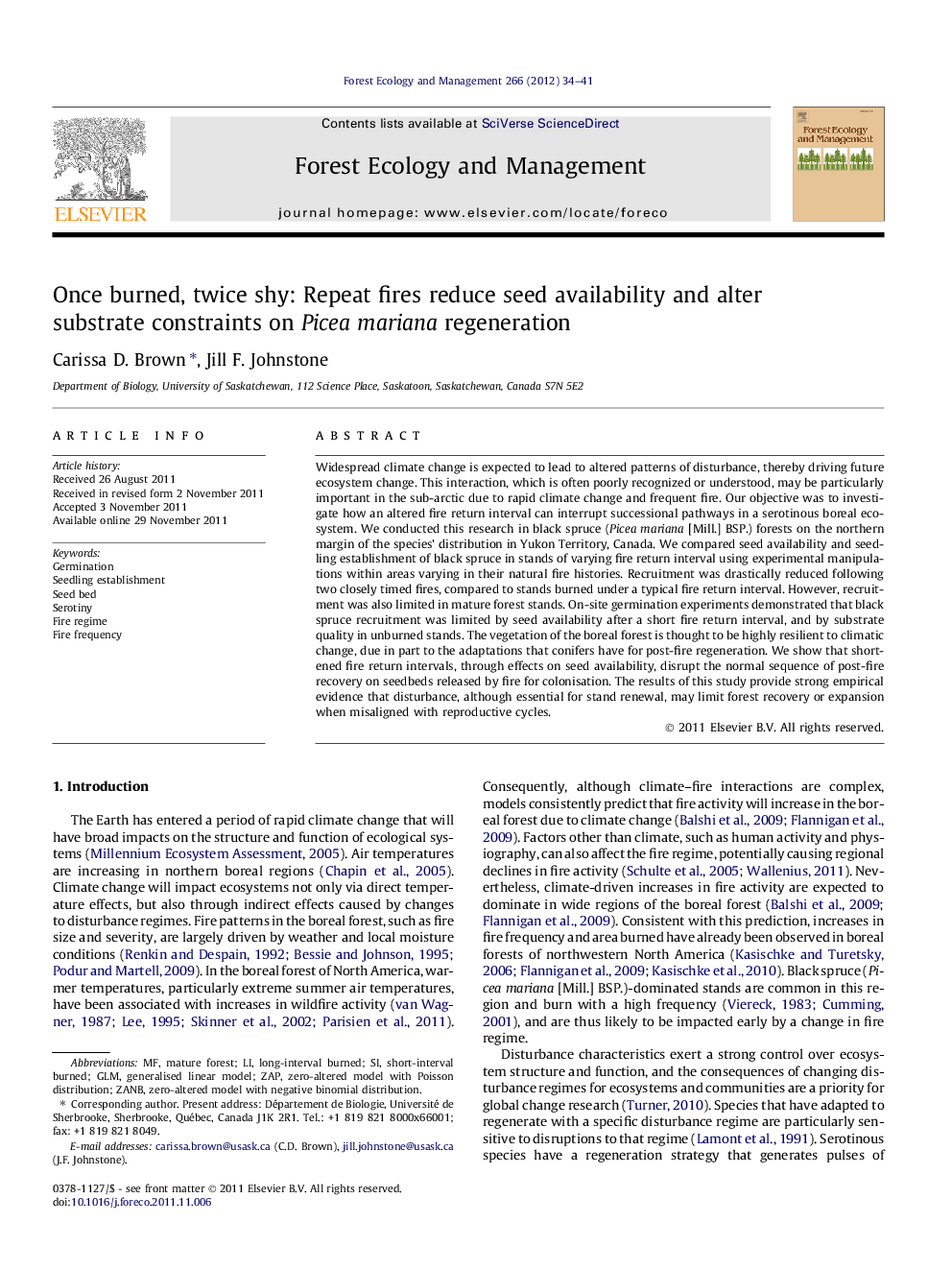| کد مقاله | کد نشریه | سال انتشار | مقاله انگلیسی | نسخه تمام متن |
|---|---|---|---|---|
| 87698 | 159263 | 2012 | 8 صفحه PDF | دانلود رایگان |

Widespread climate change is expected to lead to altered patterns of disturbance, thereby driving future ecosystem change. This interaction, which is often poorly recognized or understood, may be particularly important in the sub-arctic due to rapid climate change and frequent fire. Our objective was to investigate how an altered fire return interval can interrupt successional pathways in a serotinous boreal ecosystem. We conducted this research in black spruce (Picea mariana [Mill.] BSP.) forests on the northern margin of the species’ distribution in Yukon Territory, Canada. We compared seed availability and seedling establishment of black spruce in stands of varying fire return interval using experimental manipulations within areas varying in their natural fire histories. Recruitment was drastically reduced following two closely timed fires, compared to stands burned under a typical fire return interval. However, recruitment was also limited in mature forest stands. On-site germination experiments demonstrated that black spruce recruitment was limited by seed availability after a short fire return interval, and by substrate quality in unburned stands. The vegetation of the boreal forest is thought to be highly resilient to climatic change, due in part to the adaptations that conifers have for post-fire regeneration. We show that shortened fire return intervals, through effects on seed availability, disrupt the normal sequence of post-fire recovery on seedbeds released by fire for colonisation. The results of this study provide strong empirical evidence that disturbance, although essential for stand renewal, may limit forest recovery or expansion when misaligned with reproductive cycles.
► Climate warming is expected to cause increases in fire frequency in the boreal forest.
► A change to the disturbance regime is an indirect effect of climate change.
► We show that more frequent fire can disrupt serotinous regeneration strategies.
► This may lead to rapid shifts in stand dominance in the boreal forest.
Journal: Forest Ecology and Management - Volume 266, 15 February 2012, Pages 34–41